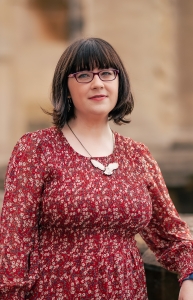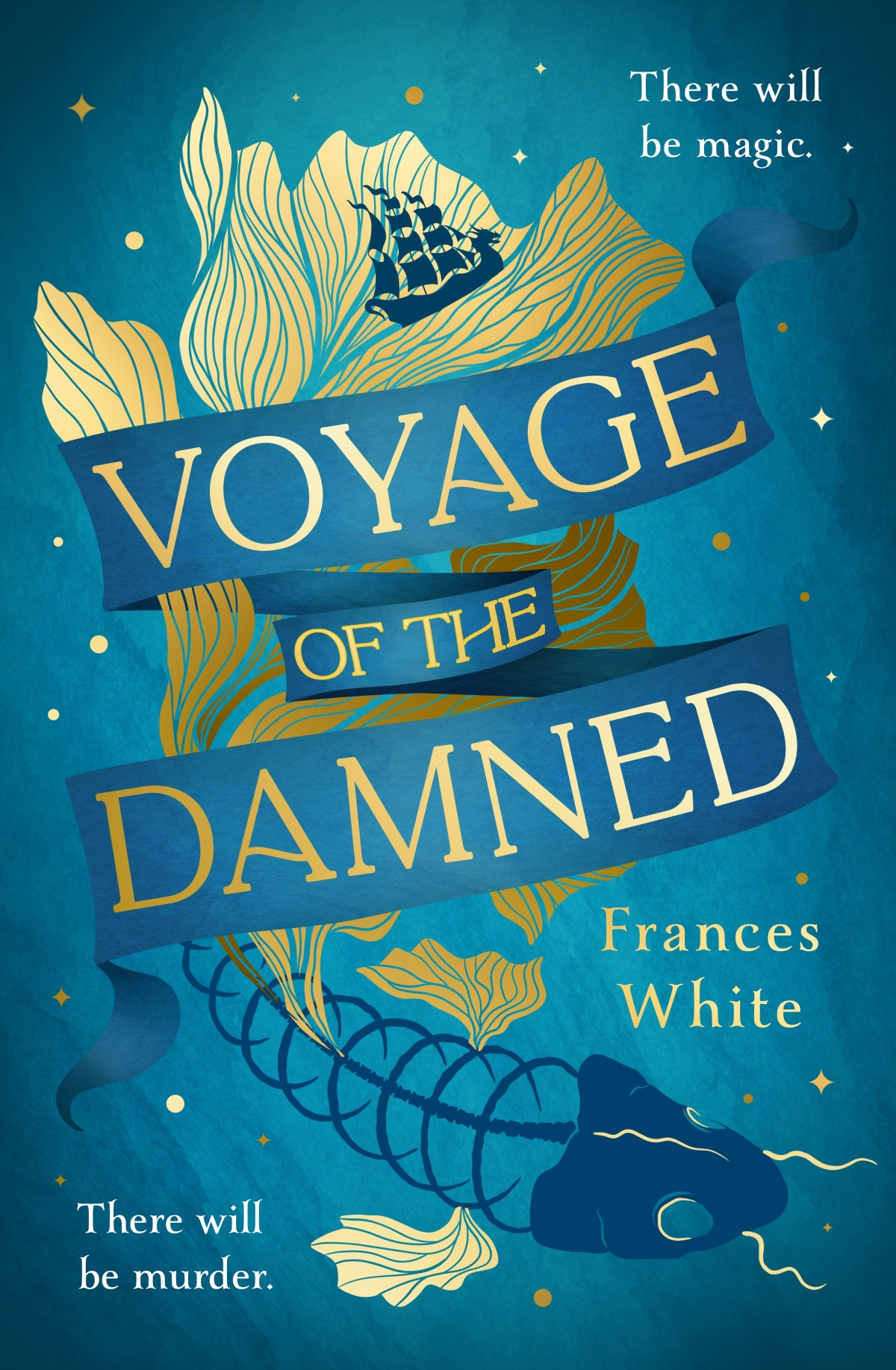
Despite discovering Agatha Christie post-first draft, the author’s influence is palpable in Voyage of the Damned, particularly in crafting suspenseful narratives and intricate character dynamics.
Debut author of the book, Frances White, delves into this influence, the significance of LGBTQ+ representation, and her writing process. White's love for languages, reflected in her protagonist Dee, underscores her desire for immersive cultural experiences. She emphasises the importance of diverse representation, especially in fantasy literature, where LGBTQ+ characters navigate worlds filled with magic and mayhem.
With a meticulous writing process involving chaotic drafts and meticulous revisions, White crafts compelling stories that resonate with authenticity and inclusivity.
When did you start reading Agatha Christie and why is she such a big influence on the book?
Funny story is I didn’t read any Agatha Christie until after the first draft of this book was written, but I had certainly experienced lots of her stories in other forms—tv shows, films and the theatre with The Mousetrap. I decided to immerse myself in murder mysteries once the first draft was done, and she was my first port of all.
It really is nigh impossible to write a murder mystery and not be influenced by Agatha Christie in one way or another. She popularised so many of the classic murder mystery qualities that have now become tropes of the genre.
Christie often began her stories with a seemingly impossible situation which demands you keep reading to find out how it happened. That was exactly the sort of feeling I wanted to create in Voyage of the Damned with the first death.
My favourite of her novels are the ones that take place in a contained setting, like Death on the Nile, or Murder on the Orient Express, and that sort of set up, with a set of colourful characters forced together under extreme circumstances was something I wanted to lean into with Voyage of the Damned.
Of all her work And Then There Were None was the biggest influence on my book. I remember watching a film adaptation of it when I was probably far too young and just being glued by the constant raising of the stakes as the characters were picked off one by one, how it pushed the people remaining into drastic actions, and the constant mounting dread. These are aspects of the genre I was eager to explore in my novel.
What would your dream magical ability be if you had one?
I would absolutely love the ability to speak and read any language fluently (including sign languages). Not only do I find different languages and the history that goes into them fascinating, but I also love travelling abroad and exploring new places. I try my best with the languages, but I feel that not speaking the language can be a barrier to being fully immersed in the culture of new places. I’d love to be able to speak to and understand anyone regardless of where in the world they are from.
Although it’s not a magical ability in Voyage of the Damned, I sort of gave Dee this skill. He’s very adept with languages and picks them up quickly. This was probably a bit of wish fulfilment on my part!
“I want fantasy books about queer people who slay dragons, cast spells and save/ruin the world, and are good and bad and everything in between.”
Was it important to you to have a cast of so many LGBTQ+ characters and could you talk a bit about why?
Yes it was very important to me. I think representation is so crucial not only for marginalised people to see themselves in media, but also to normalise it for other people. I’m lucky enough to have grown up surrounded by a huge variety of people from all walks of life, sexual orientations and backgrounds, and so having all the characters be white and straight just didn’t make sense to me, and didn’t accurately represent any world I know!
Books, and especially fantasy books, are improving with their representations of LGBTQIA+ characters, but I still think there is a way to go, especially when it comes to male identifying characters. Quite often when they are present in stories their queerness is a central aspect of the plot. I wanted a male lead who yes is queer, but that wasn’t the only thing about him and certainly isn’t his main concern! His focus is, well … trying not to die on a ship with a crazed murderer, he just also happens to be gay while doing it!
I want fantasy books about queer people who slay dragons, cast spells and save/ruin the world, and are good and bad and everything in between, just the same way straight characters are written.
Regarding the number of LGBTQIA+ characters in Voyage of the Damned, this was for all of the above reasons, but was also a product of the world. In Concordia the leaders are punished severely if they have bastard heirs, and they aren’t allowed to have children until the pilgrimage that the book takes place over is completed. It only made sense to me then that relationships that wouldn’t produce children would be encouraged for these heirs. This is why Dee, the main character, comments that most heirs are usually at least a little gay!
Tell us about your writing process.
I plan my stories in advance to a certain point. I usually know the major beats of the plot, and nearly always know the ending, but I often reach a ‘block’ where I’m unable to plan anymore without physically sitting down and writing it.
I then write what I call a ‘chaos draft’ which is VERY rough and is for my eyes only! I write it all from start to end without editing, almost exclusively focusing on plot. I’ve written whole chaos drafts without naming characters before!
Once that is done I have more of a clear vision of the overall story, and I usually sit down and critique it. I like to use a beat sheet to see where the story is lacking and could use more work. This usually focuses on the main character’s arc. Then I’ll write another draft, using the chaos draft as a guide, but basically from scratch.
By that point the plot and main character arc is pretty much all sorted so I then like to go back and focus on other aspects that need more work. Such as worldbuilding, side characters etc.
Once all that is pretty much there, the final thing I’ll do is a pass to make sure it actually reads nicely! This is the part where I perfect all the descriptions and wording etc. This is the most fun part, like decorating a Christmas tree—the reward at the end for all that hard work cutting the tree down and putting it up!
Only after this stage do I let anyone read it. Usually when I’m sick of looking at it!
READ AN EXTRACT FROM Voyage of the Damned >>
YOU MAY ALSO ENJOY
Extract: Bridge by Lauren Beukes









